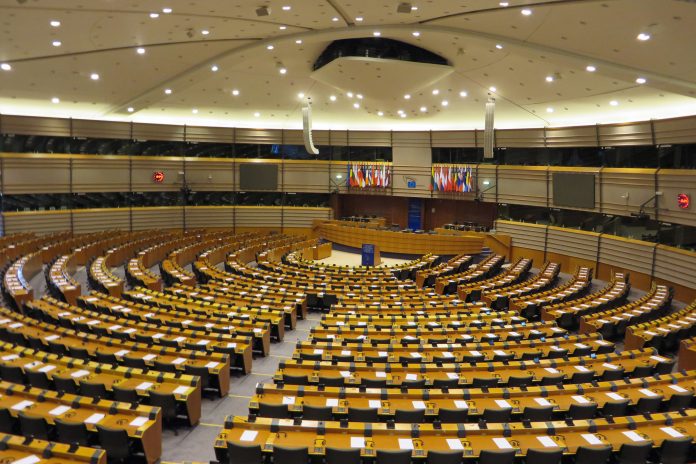In 2020, the Petitions Committee received a record number of petitions, with health and fundamental rights the most common topics in the wake of the COVID-19 pandemic.
On Tuesday, the Committee on Petitions adopted its report on deliberations in 2020 with 26 votes in favour, zero against, and one abstention. In the annual report, MEPs give an overview of their committee activities, including statistics on received petitions and assessments of other parliamentary activities such as resolutions, reports, hearings, workshops and fact-finding visits.
Health and citizens’ rights issues in focus
In the context of a public health emergency that led to lockdowns and other restrictions, the most frequent topics of petitions were fundamental rights (268 petitions, 11 % of total) and health (221 petitions, 9 %), followed by environmental issues (200 petitions, 8 %). Among the rights issues mentioned were the freedom of movement, the right to work, the right to information and the right to education, whereas the health petitions highlighted concerns over public health and its protection, among other things. To respond to citizens’ concerns, the Petitions Committee decided to prioritize COVID-19-related petitions, and treated them using its urgency procedure.
Resolutions and fact-finding visits
The committee tabled five motions for resolutions in 2020, all of which were adopted by the Parliament plenary. Three resolutions were related to COVID-19 or its consequences: for example, a resolution on the rights of persons with intellectual disabilities in the COVID-19 crisis, which continued the Committee’s work protecting disability rights in the EU based on the UN Convention on the Rights of Persons with Disabilities (CRPD). Another well-received resolution from 2020 highlighted the need to fund more research on Myalgic Encephalomyelitis, and raise awareness about it with more training. Due to the pandemic, the Committee had to postpone several planned fact-finding visits. However, it did conclude one mission in February 2020, investigating allegedly unfair contract terms of mortgage loans in Bulgaria.
Relations with other EU bodies
The Petitions Committee has co-operated well with the European Ombudsman, who has regularly contributed to its work. Also, the Committee maintains a good working relationship with the European Commission, but also wish that the Commission would provide more precise replies to petitioners, and generally take a more active role in its treatment of petitions. PETI members urge the Commission to provide them with more information about infringement procedures and pilot projects, and to follow up on compliance issues raised in petitions. More generally, MEPs ask for more transparency and better access to documents of the EU institutions, and a reform of the public access regulation, which they consider outdated. The Committee hopes that the Conference on the Future of Europe could also be used to inform citizens about the EU petitions process, and to encourage them to participate.
In 2020, the European Parliament received a total of 1 573 petitions, representing an increase of 16 % compared to 2019. The majority of these (80 %) were submitted through the Petitions Web Portal. The right to petition the European Parliament on matters of the Union’s fields of activity is one of the fundamental rights of EU citizens (Art 277 TEU). It offers citizens an open, democratic and transparent mechanism to directly address their elected representatives. Each year, the Committee on Petitions gives a comprehensive overview its work, including statistics on received petitions and assessments of other parliamentary activities such as adoption of reports, organisation of hearings and relations with other EU institutions.

